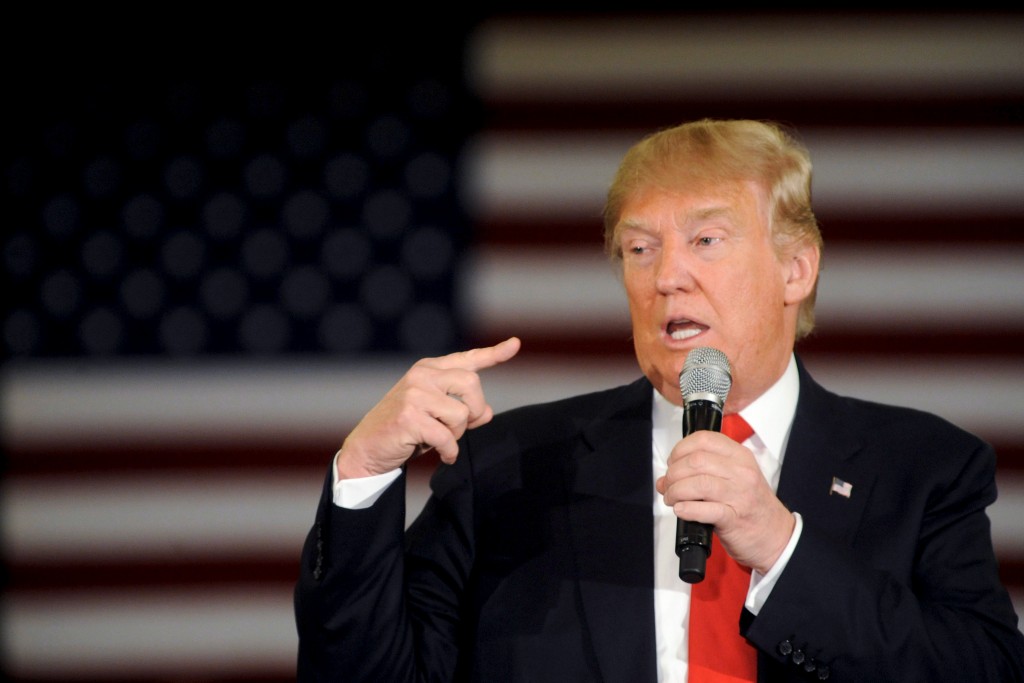The 45th president, Donald John Trump, or more commonly known as Donald Trump has been met with mixed likeability. Ranging from “he’s going to drain the swamp!” to “OH NO IT’S THE END OF THE WORLD!!”, he’s been met with very interesting responses both nationally and internationally. Although the years he was as POTUS is anything but uneventful, there’s a couple of things very interesting about his popularity across the world.
One of them being? In how he speaks. For a lot of us, the expectations given to our world leaders are that they should be “intelligent”, yet Donald Trump seems to be the exact opposite of that notion. Whether it is on purpose or he was just born that way is for another time. However, it’s no secret that Donald Trump has the most basic, most simplistically constructed, the least diverse vocabulary of any president of the United States in the last 90 years. This, to boot, is by a statistically significant margin in each of these cases.
Columbia University Professor of Linguistics, John McWhorter on his Interview at MSNBC mentions that Donald Trump uses a lot of “Oral Speech”, a speech meant to keep in check if our listeners are still listening and understand what we talk about. Words like “y’know?” becomes a very common phrase in what oral speech is, in this example. To quote John McWhorter in this interview, “…he (Donald J. Trump) never leaves the realm of the casual, when he speaks.”
Is it necessarily a bad thing to be speaking casually in formal events? No, not really. However, it does show a lack of intelligence for want of a better word. People behind factba.se has made an interesting insight into Donald Trump’s Flesch-Kincaid grade level while he is POTUS.
The Flesch-Kincaid Grade Level is a widely used readability formula which assesses the approximate reading grade level of a text. It was developed by the US Navy who worked with the Flesch Reading Ease. Previously, the Flesch Reading Ease score had to be converted via a table to translate to the reading grade level. The amended version was developed in the 1970s to make it easier to use. The Navy utilized it for their technical manuals used in training.
Now it’s used for a much wider variety of applications. If a text has a Flesch-Kincaid level of 8, this means the reader needs a grade 8 level of reading or above to understand it. Even if they’re an advanced reader, it means the content is less time-consuming to read.
Back to Donald Trump’s Flesch-Kincaid Grade Level. According to factba.se in 2018, Donald Trump usage of vocabulary is only at the 4th-grade level, scoring a 4.6 in the Felsch-Kincaid Grade Level score. That means people at the 4th grade level of reading would be able to easily understand Donald Trump. In comparison, Barack Obama scores at a 9.7 in the Flesch-Kincaid Grade Level, 5.1 points higher than Trump. Even the closest one to Trump was Harry S. Truman, a President known historically for a folksy, simple pattern of speech, scored a 5.9.

It shows that Donald Trump’s vocabulary and grammatical structure is significantly more simple, and less diverse, than any of the last 15 Presidents of the United States. It does not mean that this data is necessarily bad, however, it perhaps questions his self-proclamation of being a “Stable Genius”.
Throughout Donald Trump’s 986 days of presidency, factba.se ran another analysis on Donald Trump’s Flesch-Kincaid Grade Level, lo and behold his unscripted speech dropped by 0.1 point, from 4.6 to 4.5. The data used has a minimum of 100.000 words in the analysis.

According to the paper written by Orly Kayam of Wingate Academic College on “The Readability and Simplicity of Donald Trump’s Language”, the fact that Trump speaks at a readability level that is lower than the level of the average adult in the US means that he is understood by almost every American voter. However, the fact that he speaks in simple vocabularies does not mean that this is what necessarily is bringing Trump more supporters.
According to the exit polls in the 2016 election conducted by Edison Research for the National Election Pool and reported on CNN on election day, 9 November 2016, we can see that college graduates supported Hillary Clinton nine percent higher than Donald Trump (52%-43%). Whereas those without a college degree backed Donald Trump 8% higher than Hillary Clinton (52%-44%). Whereas White voters without a college degree supported Trump by an appalling 67% and only supported Hillary Clinton by 28%.
This is an interesting result as it conforms to the tendency that people will likely support a candidate who speaks at a similar level and that people with high readability levels are likely to reject candidates with lower readability levels. However, it is not necessarily so. Another theory that works is that Donald Trump conforms to the trend of anti-intellectualism. People may still support Donald Trump regardless of their readability level and educational background because of this trend. This trend, in politics, rejects the conventional politician in search for something different. In the case of Donald Trump, a politician who says what he or she really thinks without conforming to the rules of political correctness.
According to Frank Luntz’s “Ten Rules of Effective Language”, the first two rules is simplicity and brevity. He pushes the idea of using small words and short sentences to get a point across. According to Luntz who worked for New York City Mayor Rudy Giuliani from 1993 to 2001, a candidate should avoid words that might force someone to look it up in a dictionary.
Trump’s usage of simple, straightforward rhetoric was an intrinsic part of his campaigning strategy. His overwhelming success in the political field suggests that using simple, low grade-level language may benefit politicians in terms of addressing a wider audience and conveying clearer and simpler messages that sound more familiar and less politically oriented. The fact that this kind of rhetoric proves its effectiveness also says something about the public, or at least about American society. It conforms to the idea that the public today appreciates straightforwardness and the use of simple, or even colloquial, language. It is weary of the “old” politics and what it stands for and has come to admire the anti-intellectual leader.
There are some things that we can take from Donald Trump from his time as POTUS, even if his approval ratings drop as low as 45% in his time as POTUS. Perhaps, the most effective way to talk to the mass is to “dumb down” your language. That way, itt will be easier to understand to the masses that is filled with people of different educational backgrounds. With that in mind, perhaps the best way to convey a message the educated is also to speak their language. Maybe it’s time to change the way we approach campaigns for you aspiring politicians out there.
Feat image via: pbs.org
Try the free CSS tidy up which lets you beautify stylesheets for your websites.




